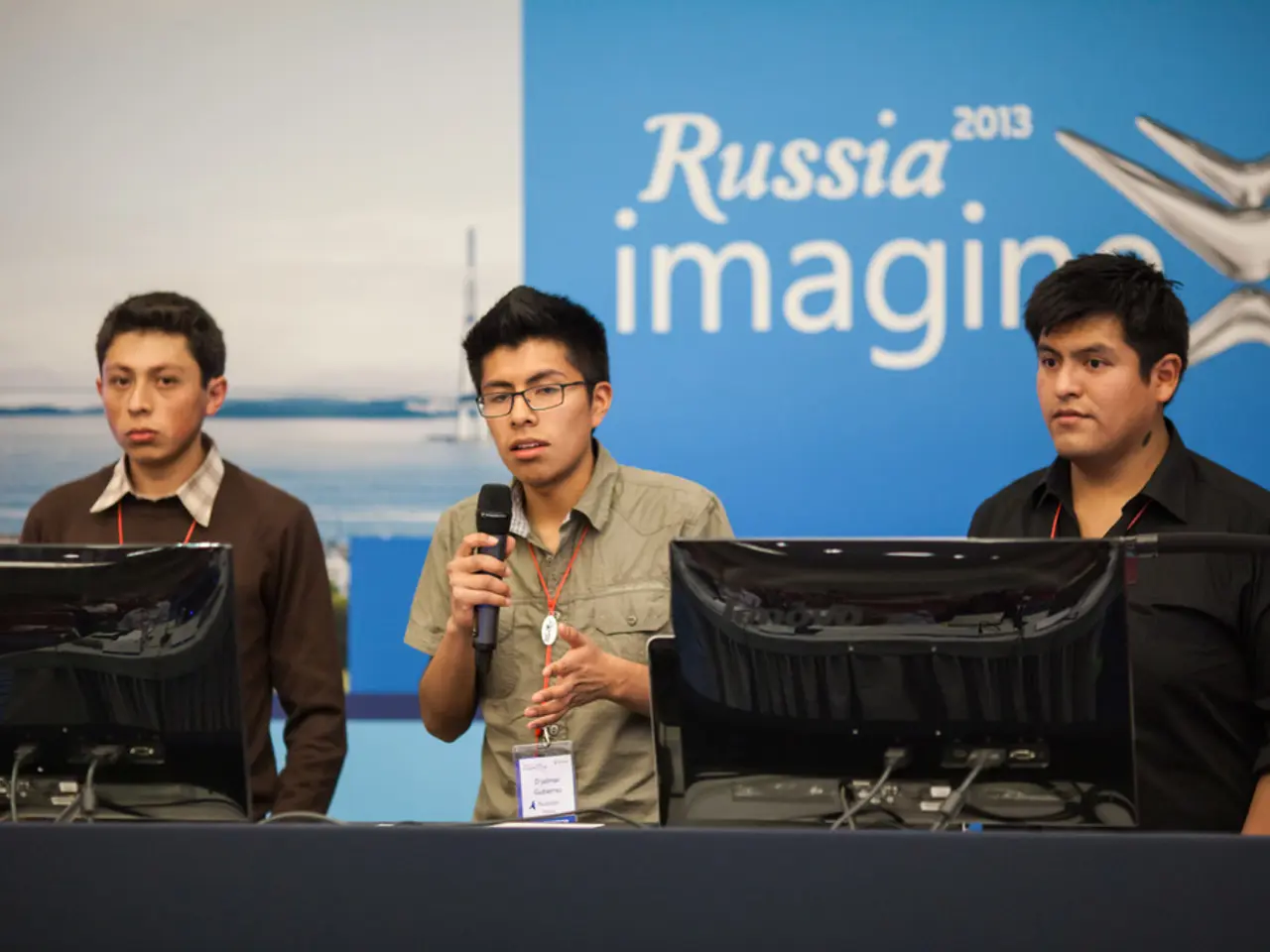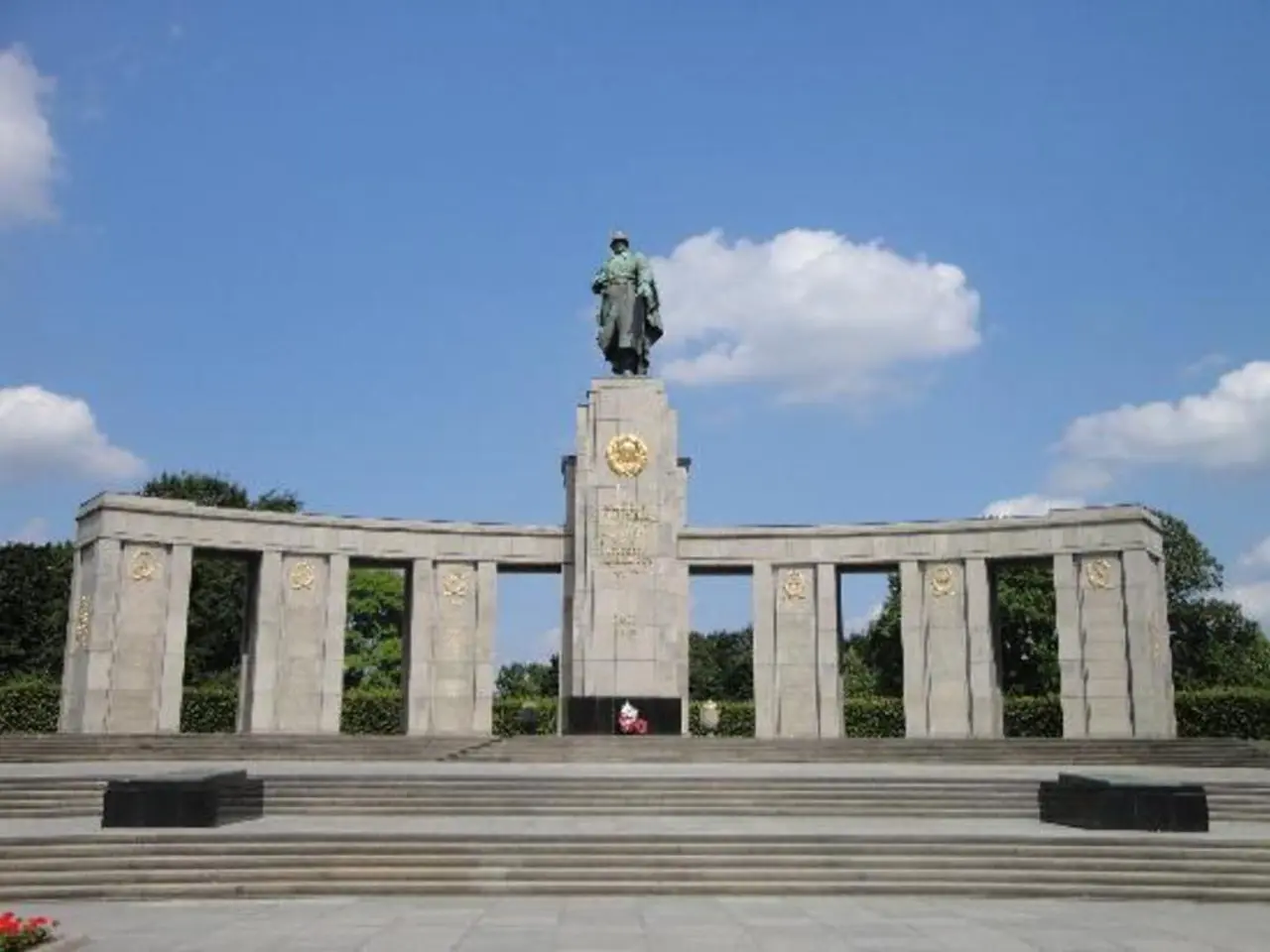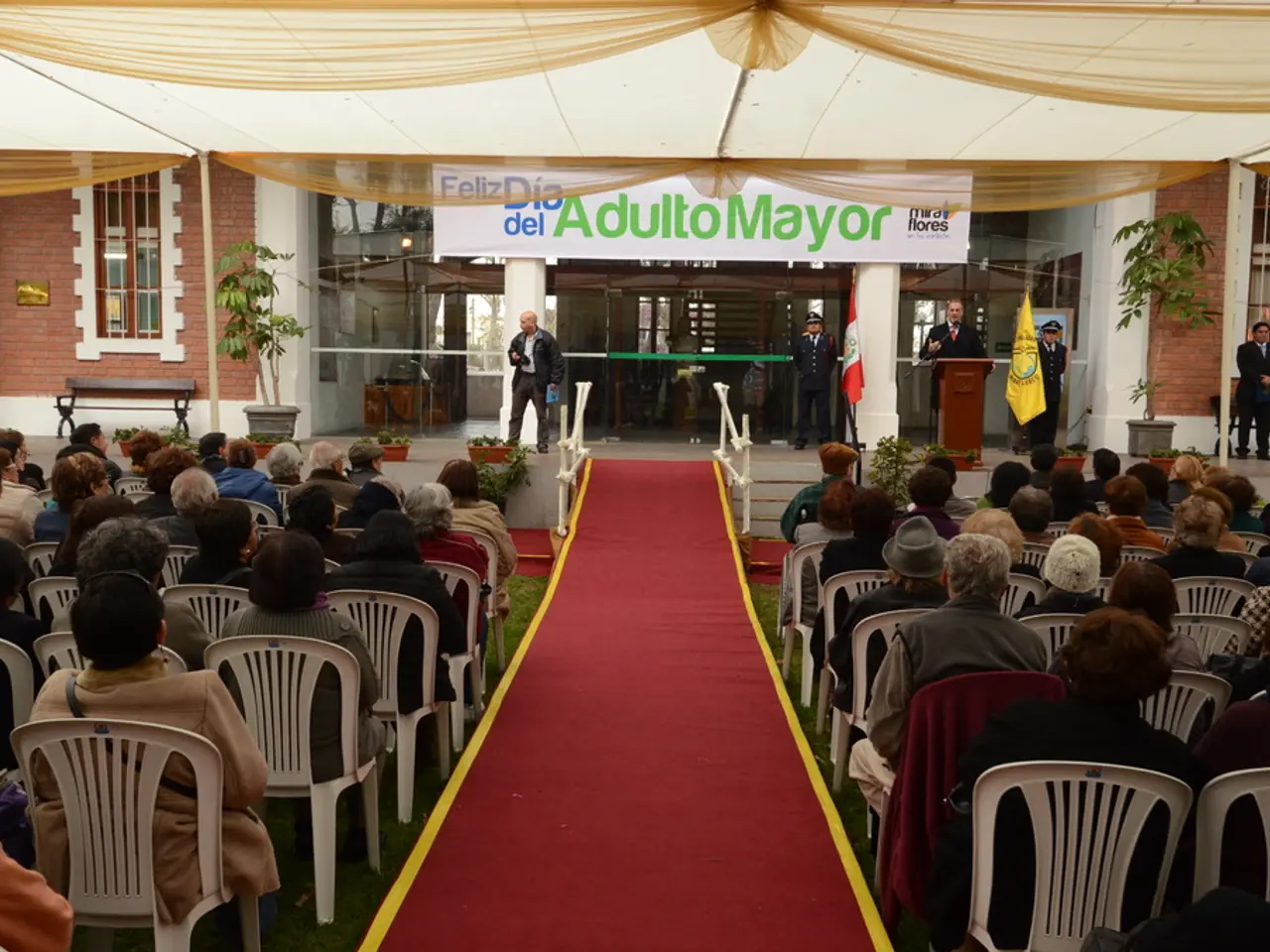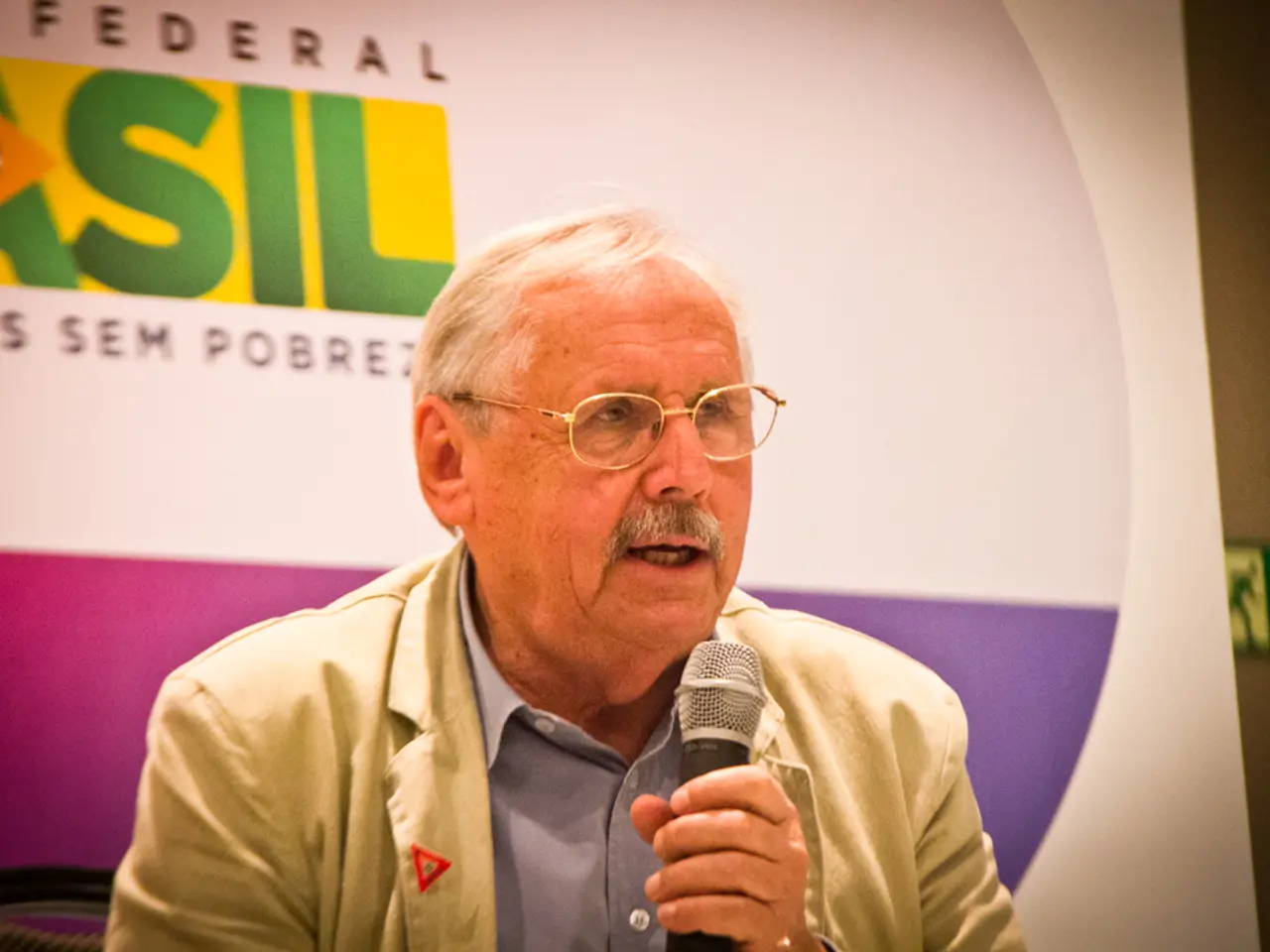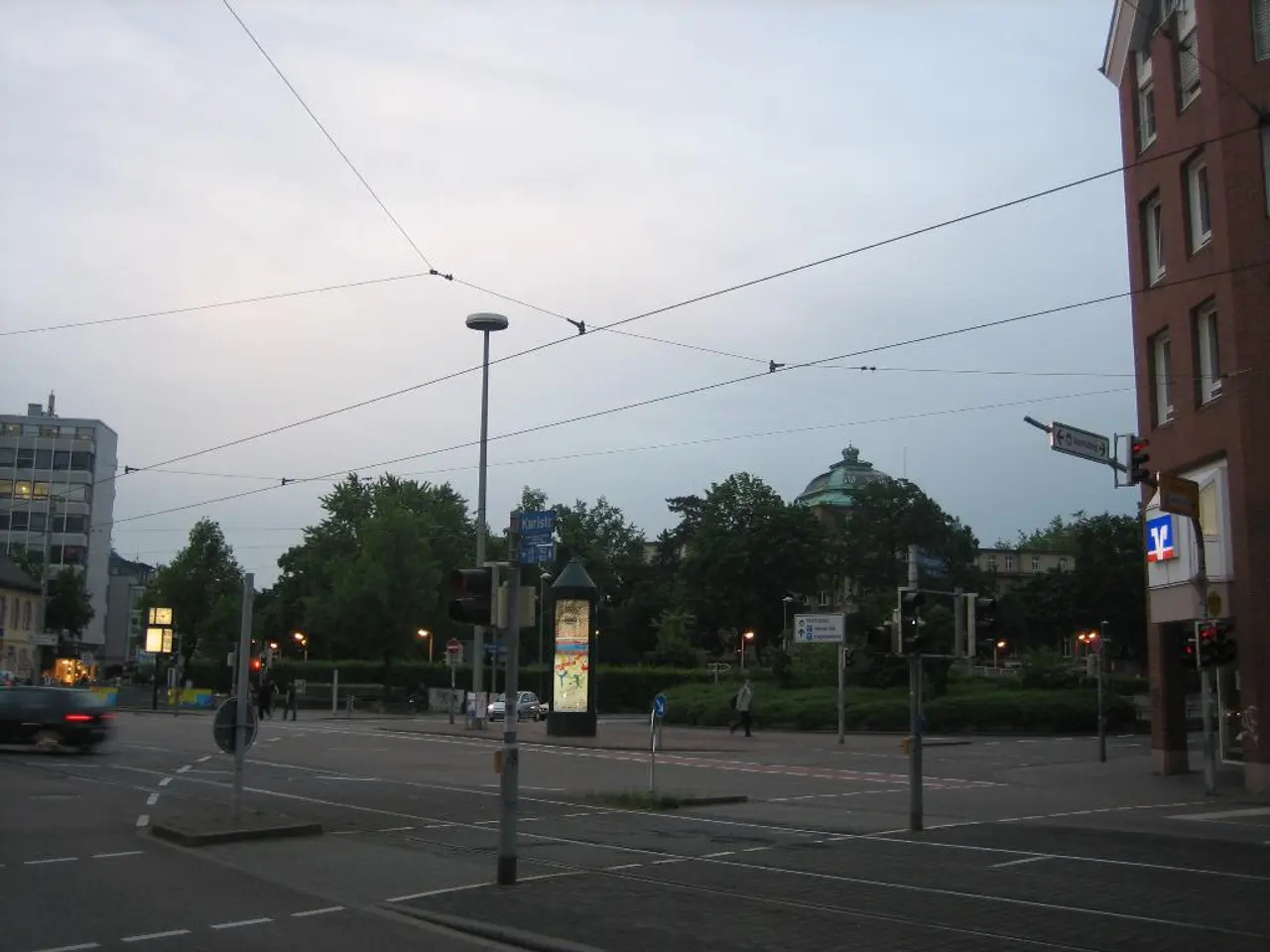Soviet Officer Stanislav Petrov's Heroic Act: Unraveling How He Averted Nuclear Disaster
In the heart of the Cold War, on September 26, 1983, a pivotal moment unfolded that could have changed the course of history. At the Serpukhov-15 bunker, where the Soviet Union's early-warning missile detection system, Oko, was stationed, Lieutenant Colonel Stanislav Petrov, a man of duty and courage, was on watch[1][3].
The Oko system, a product of the Soviet Union's extensive investment in early-warning systems, had been designed to detect incoming missiles as early as possible, providing a narrow window for retaliation in accordance with the doctrine of mutually assured destruction[4]. That day, the system indicated an incoming nuclear attack from the United States, with data showing that five intercontinental ballistic missiles were on their way[1].
Faced with this alarming alert, Petrov, a seasoned officer who had joined the Soviet Air Defence Forces in 1972 after graduating from the Kiev Higher Engineering Radio-Technical College[2], displayed exceptional judgment and skepticism. He questioned why only six missiles were detected, instead of the massive salvo that would be expected in a real attack, and noted the lack of corroborating signals from ground-based radar[1].
Contradicting official protocol, Petrov reasoned that the alarm was likely a false positive. He waited, his decision not to report the alert potentially averting a catastrophic misunderstanding[1][3][4]. His level-headedness under pressure is widely credited with averting a potential nuclear war at a time when Cold War tensions were exceptionally high, particularly in the context of ongoing incidents such as the Able Archer 83 NATO exercise and mutual distrust between the superpowers[1][3][4].
However, Petrov was not immediately rewarded for his actions. Instead, he was interrogated and reprimanded for improperly following procedure with his paperwork, and the entire incident was classified[1]. It was not until the late 1990s, following the collapse of the Soviet Union, that Petrov's heroic deed was revealed, earning him several international awards and recognition as "the man who saved the world"[1][2].
Born on September 7, 1939, in Vladivostok, Russia, Petrov came from a military family. His father served as a fighter pilot in the Second World War, and his mother worked as a nurse[2]. For his role in the averted disaster, Petrov will forever be remembered as a beacon of calm and reason in a time of global tension, a testament to human courage and judgment in the face of adversity.
Sources: [1] https://en.wikipedia.org/wiki/Stanislav_Petrov [2] https://www.bbc.com/news/world-europe-37486465 [3] https://www.history.com/news/stanislav-petrov-man-who-saved-the-world [4] https://www.npr.org/sections/parallels/2013/10/11/235701257/the-man-who-saved-the-world-from-a-nuclear-disaster
In the context of Cold War politics and general news, Stanislav Petrov, a Soviet officer who served during the time of war-and-conflicts, displayed exceptional judgment when the early-warning missile detection system, Oko, falsely indicated an incoming nuclear attack from the United States in 1983. His decision not to report the alarm potentially averted a catastrophic misunderstanding, and his level-headedness under pressure has been widely credited in the context of ongoing worldwide tensions and ongoing incidents such as the Able Archer 83 NATO exercise.
